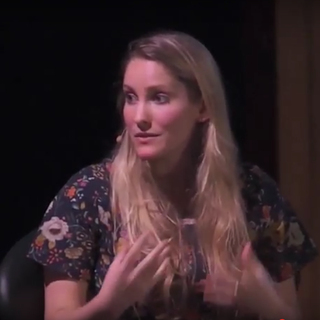A Quote by Jennifer Ashton
But for me, a physician, chief medical correspondent for a major network, and women's health expert, the thought of exposing myself to millions of people as someone who'd been completely blindsided by the suicide of my children's father, and by the impact of that suicide on Alex and Chloe and me, was nothing short of terrifying.
Related Quotes
They all think any minute I'm going to commit suicide. What a joke. The truth of course is the exact opposite: suicide is the only thing that keeps me alive. Whenever everything else fails, all I have to do is consider suicide and in two seconds I'm as cheerful as a nitwit. But if I could not kill myself -- ah then, I would. I can do without nembutal or murder mysteries but not without suicide.
If I commit suicide, it will not be to destroy myself, but to put myself back together again. Suicide will be for me only one means of violently reconquering myself, of brutally invading my being, of anticipating the unpredictable approaches of God. By suicide, I reintroduce my design in nature, I shall for the first time give things the shape of my will.
Far too many doctors-many of them excellent physicians-commit suicide each year; one recent study concluded that, until quite recently, the United States lost annually the equivalent of a medium-sized medical school class from suicide alone. Most physician suicides are due to depression or manic-depressive illness, both of which are eminently treatable. Physicians, unfortunately, not only suffer from a higher rate of mood disorders than the general population, they also have a greater access to very effective means of suicide.
...we ask: Why suicide? We search for reasons, causes, and so on.... We follow the course of the life he has now so suddenly terminated as far back as we can. For days we are preoccupied with the question: Why suicide? We recollect details. And yet we must say that everything in the suicide's life- for now we know that all his life he was a suicide, led a suicide's existence- is part of the cause, the reason, for his suicide.
A middle-aged woman who looked like someone's cleaning lady, a shrieking adolescent lunatic and a talkshow host with an orange face... It didn't add up. Suicide wasn't invented for people like this. It was invented for people like Virginia Woolf and Nick Drake. And Me. Suicide was supposed to be cool.
What's important is that people give the kinds of reasons that can be understood and appraised apart from their particular comprehensive doctrines: for example, that they argue against physician-assisted suicide not just by speculating about God's wrath or the afterlife, but by talking about what they see as assisted suicide's potential injustices.
As a young physician in the mid-'80s, caring for people who had contracted H.I.V., I lost two of my patients to suicide at a time when the virus was doing very little harm to them. I have always thought of them as having been killed by a metaphor, by the burden of secrecy and shame associated with the disease.
A huge amount of what feminists are fighting for would have major positive impact for men as well as women. Take the male suicide rate, for example. In part, the problem arises from the idea that men are tough and manly, that 'boys don't cry' and it's embarrassing for them to talk about their feelings. So men are less likely to reach out for help and support with mental health issues. But that gender stereotype, which exists alongside the converse notion that women are over-emotional, 'hysterical', or 'hormonal', is one feminists are fighting hard to debunk.
































